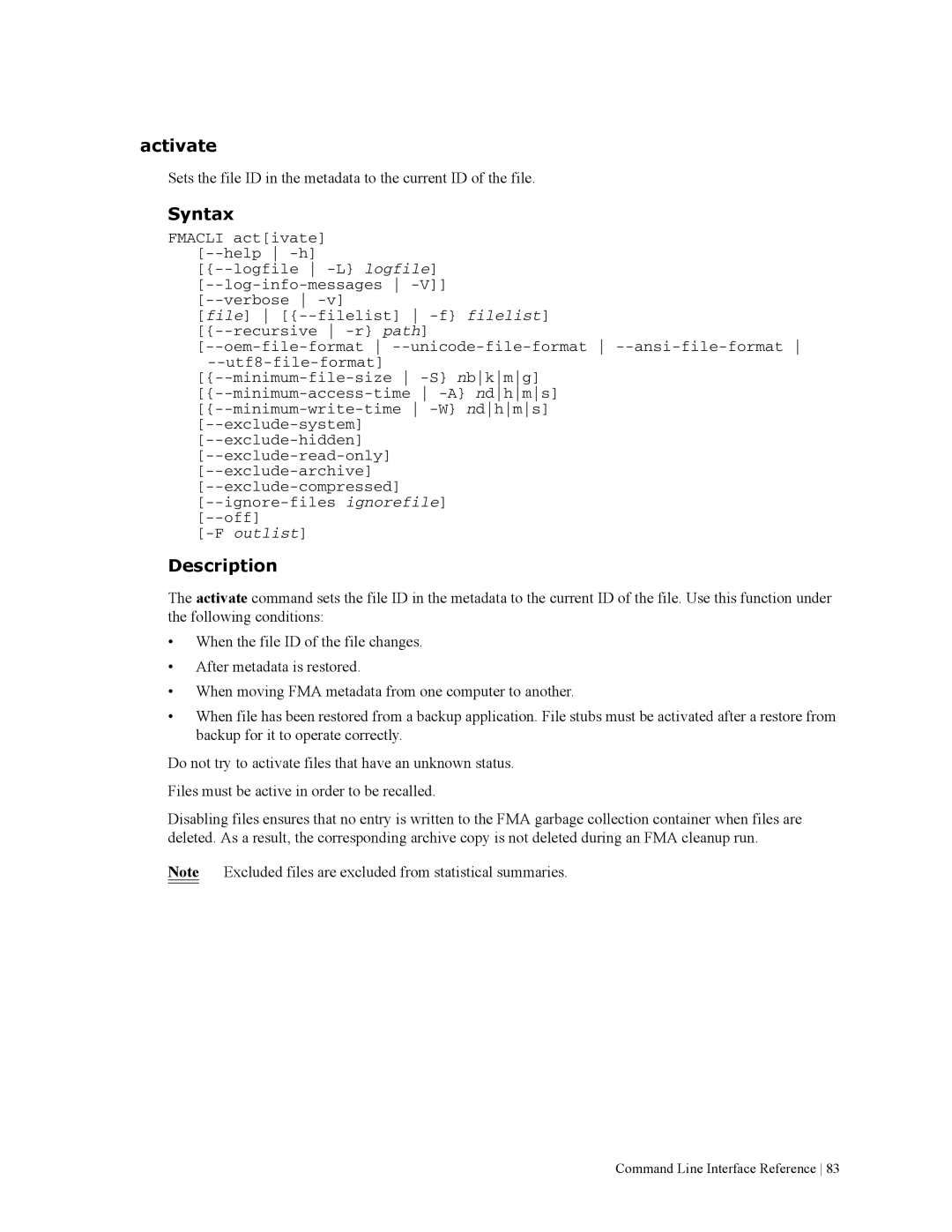activate
Sets the file ID in the metadata to the current ID of the file.
Syntax
FMACLI act[ivate]
[file]
Description
The activate command sets the file ID in the metadata to the current ID of the file. Use this function under the following conditions:
•When the file ID of the file changes.
•After metadata is restored.
•When moving FMA metadata from one computer to another.
•When file has been restored from a backup application. File stubs must be activated after a restore from backup for it to operate correctly.
Do not try to activate files that have an unknown status. Files must be active in order to be recalled.
Disabling files ensures that no entry is written to the FMA garbage collection container when files are deleted. As a result, the corresponding archive copy is not deleted during an FMA cleanup run.
Note Excluded files are excluded from statistical summaries.
Command Line Interface Reference 83
